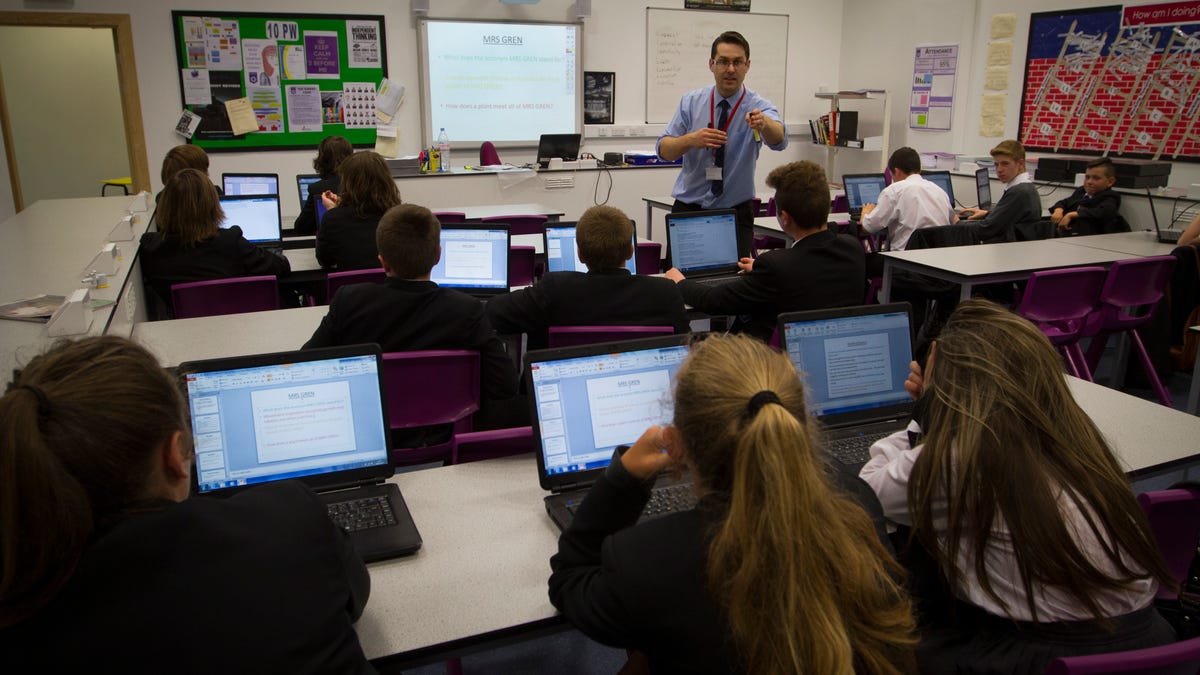Microsoft gears up to retake the classroom
The tech giant is planning a renewed push into schools, aiming its Windows software and Surface tablets at kids as well as adults.

Pop quiz: Which tech company is the most popular in schools?
Answer: Google , by a mile. And Microsoft hopes to change that.
The software giant is planning to hold an event in New York on Tuesday at which it's expected to talk about new software for schools, and even a new low-cost PC designed to compete on price with machines from other computer makers and on functionality with Apple 's iPads.
What makes this move interesting is what Microsoft is going up against. Its key competitor isn't the latest trendy Apple i-device. Microsoft is fighting the Chromebook: a cheap, stripped-down PC that runs Google's Chrome OS software for surfing the web and often has a lower sticker price than many other computers.
To go up against these machines, Microsoft's new software to power school PCs will be a revamped version of the Windows operating system that typically powers PCs, but it will only run secure apps from Microsoft's app store, according to our sister site ZDNet's sources.
This may help make it easier for teachers and students to use Windows, by cutting down on the complexity and time administrators typically face when managing large fleets of computers.
Those typical frustrations are what helped Google break Microsoft's decades-long popularity in schools, said Patrick Moorhead, head of Moor Insights & Strategy.
It even happened in his own kid's school. Ten years ago, the institution was using Windows computers; then it upgraded to Windows-based tablets . Now it's moved to Chromebooks.
You might assume that, for a school, cost would be the primary reason. But it wasn't.
"It was about the simplicity of it," Moorhead said. Setting up and managing a bunch of computers that basically just use the web is much easier than trying to corral PCs that require separate software like the Office suite and virus protection.
It's probably no surprise then that Chromebooks have become a go-to device for schools in the US. More than half the devices purchased last year were Chromebooks, according to market researcher Futuresource Consulting, up from about a third in 2014.
Add that Google's Gmail service is the most popular email service, with more than 900 million logging in each month, and that Apple's iPhone was still the most popular among teens last year.
Back to school
Lower-cost hardware and specialty software aren't exactly a recipe for making a bunch of profit. So why would Microsoft bother with it?
For the software giant, regaining its toehold in the education market represents both a point of pride and, more importantly, an investment in the future.
The thinking goes that if kids get comfortable with Microsoft products now, they'll demand them as they're growing up and -- here's where the money comes in -- when they join the workforce. After all, business and productivity software and services are where much of Microsoft's growth comes from these days.
To be sure, Microsoft's devices are more popular with schools outside the US. The company has also offered Word, Excel and PowerPoint software for pretty much all tablets and phones for the past couple of years. And its Xbox video game console has a devoted following of millions of gamers.
Now it'll be up to Microsoft to show it can make the grade with schools again.
Tech Enabled: CNET chronicles tech's role in providing new kinds of accessibility.
Logging Out: Welcome to the crossroads of online life and the afterlife.

